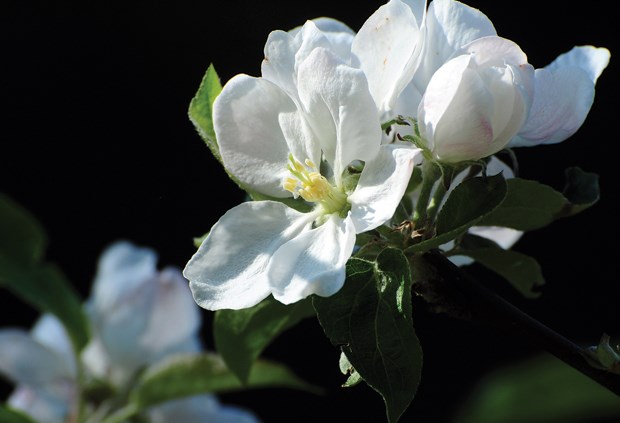When gardening, there are ways to take advantage of the natural growing conditions provided by the environment, as well as cause damage.
Gardeners, landscapers and arborists routinely make changes to the soil, air and water. Some changes are good and some are not.
In Sound Investment: Measuring the Return on Howe Sound's Ecosystem Assets, a report by Michelle Molnar of the David Suzuki Foundation, some interesting insights were revealed that are relevant to all of us.
The report clarified the range of ecosystem services provided to everyone living, working or visiting the Howe Sound region. Those ecosystems are interconnected and similar to those on the North Shore.
Our ecosystem provides services we often take for granted such as clean water, which we have in abundance unlike many regions in the world; as well as other quiet benefits like carbon storage and air purification provided by our region's forests.
And given the recent dock fire in Squamish, the collapse of part of the Stawamus Chief and traffic congestion, we could use some air purification. Our environment also provides food from farming, fruit growing and fishing, along with the more obvious benefits, like recreation, tourism and nature-based education.
For each service, Molnar's report provided dollar values for total value per year, and dollar value per hectare per year. The report provided insightful asset management information on the region's natural capital. I would have expected government to release such information, but the David Suzuki Foundation is privately funded.
Much of the information in the report has crossover learning for homeowners, landscapers and gardeners. A healthy garden provides similar services, for the owner and the wider community. For example, planting more trees in gardens, parks and on boulevards sequesters more carbon. Planting more trees also increases the urban forest's ability to purify the air. Urban trees also provide cooling in summer and wind protection in winter.
When it comes to providing food in our region, where better than in a garden? A backyard, frontyard, in a container or up a trellis, there are many ways to grow food at home. There are few studies that outline the dollar value benefit for homeowners who grow fruit and vegetables at home, so numbers are hard to come by. I would hazard a guess the value is easily several hundred dollars a year depending on the crops and garden size.
One of the topics discussed in Molnar's report was nutrient cycling. In the garden, nutrient cycling occurs in a similar fashion as it does in the wild. But residential gardens grown with chemical fertilizers produce negative impacts on the region's ecosystems, specifically the marine environment.
Phosphorus, nitrogen and other nutrients used in chemical fertilizers for lawns and gardens leach into rivers and ultimately the ocean. The downstream impact of fertilizing is felt in the form of algal bloom, lack of oxygen in the ocean and a decrease of aquatic life force. To counter the problem of fertilizer leaching, use lower fertilizer doses or apply organic amendments like mulch, compost or manure. If you feel the need to feed, then fertilize after the spring growth flush, usually in late May or early June. Plants use very little external nutrients during the initial spring leaf flush, instead energy comes from stored nutrients in the bud, stem and root.
Another thing gardeners can do to help sustain the region's ecosystems is to reduce pesticide and herbicide use, even on invasive plants. The human health risks are not worth the benefit. There is growing scientific evidence that pesticides and herbicides are harming life on our planet, especially aquatic organisms and our innocent, young children. Controlling pests, diseases and weeds is not about buying products, as consumers have become brainwashed and habituated into believing. Controlling those problems is a matter of technique, skill and knowledge and a bit of gardening exercise.
Here are five simple ways to garden gently and sustainably on Earth:
1. Remember that anything you put in the ground eventually integrates into the environment and ends up in air, soil, water, food and children. We are what we eat. We are what we breathe.
2. Ask your landscaper or gardener if they measure, calculate and apply fertilizer according to the bag rates or according to the actual nutritional needs of your plants and soil. There's a big difference.
3. Plant for the long-term, which depends on how long you plan to be in your current home. Space plants far enough apart and away from structures to avoid having to prune unnecessarily in the future.
4. Choose the right plant for the right place - not a plant that suits your taste in the wrong place.
5. Don't view gardening as work, perceive gardening as a combination of physical, intellectual and spiritual pursuits, which is the only way that truly beautiful gardens are grown.
Todd Major is a journeyman horticulturist, garden designer and builder, teacher and organic advocate. [email protected]



